Monday Feb 16, 2026
Monday Feb 16, 2026
Thursday, 7 March 2019 00:39 - - {{hitsCtrl.values.hits}}

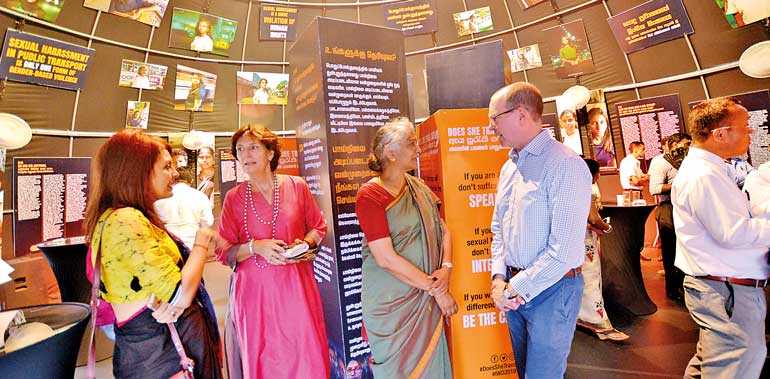
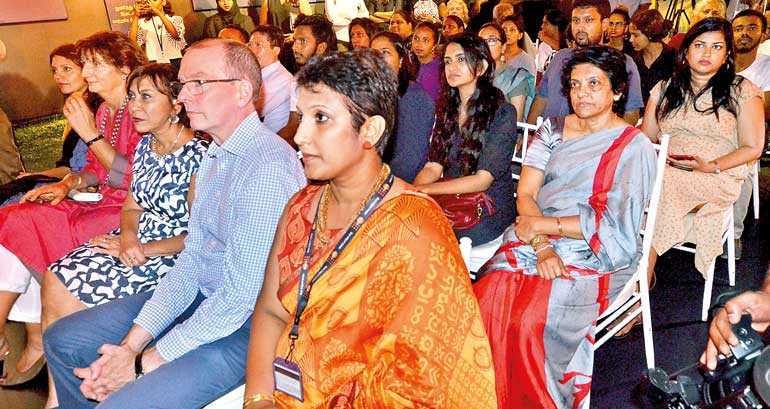
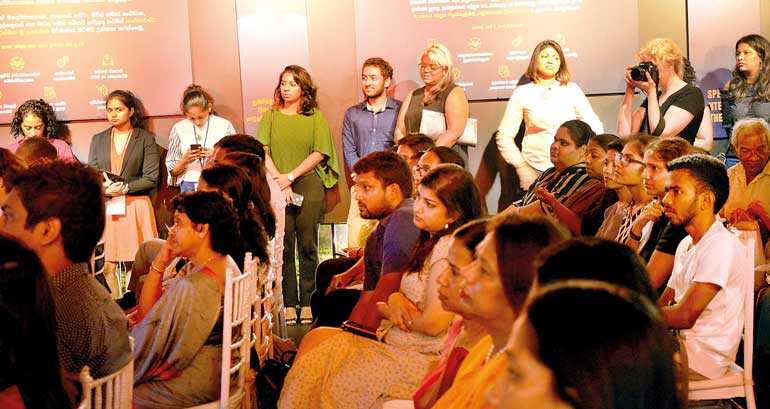
A section of the Crowd
By Divya Thotawatte
Bringing sexual harassment in public transport to the fore, the ‘Does she travel safe?’ campaign, an initiative to generate awareness on norms and attitudes discriminating against women and girls, was launched last Friday in an attempt to put a halt to the matter.
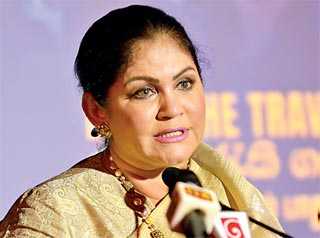 |
Mayor of Colombo Rosy Senanayake |
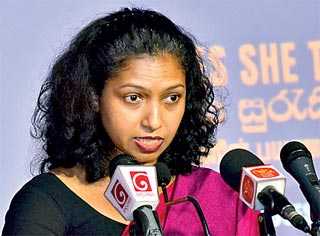 |
UNFPA Programme and Policy Analyst-Gender Sharika Cooray |
 |
Activist Shalinie Kulatunga |
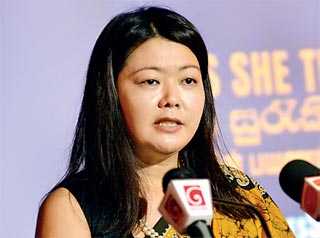 |
UNFPA Representative Ritsu Nacken |
Leading up to International Women’s Day, the United Nations Population Fund (UNFPA), together with the Colombo Municipal Council, Ministry of Women and Child Affairs, and the Ministry of Transport and Civil Aviation, launched the ‘Does she travel safe?’ campaign in a bid to generate awareness on sexual harassment in order to protect women from gender-based violence while using public transport in Sri Lanka.
The project is a public exhibition featuring real stories of women and girls and their experiences of sexual harassment in buses, and trains which depicts the existence of power structures that perpetuate norms and attitudes discriminating against women and girls.
Mayor of Colombo Rosy Senanayake who was present at the launch ceremony said: “Ninety per cent of the women using public transport today have faced sexual harassment while using public transport. We were unable to save this generation and the least we can do is safeguard future generations so they would be able to travel safely. I thank the women who have bravely come forward today with their stories and experiences to help us and contribute to make this change.”
According to a study conducted by UNFPA, 90% of women and girls have endured sexual harassment at least once in their lifetime on public buses and trains. Unfortunately, only 4% of the victims have reported the incidents to the police. Lawyer and Activist Shalinie Kulatunga sharing her experiences proved how difficult it could be to battle harassment against women and discriminating attitudes that are rooted deep in the society.
Kulatunga explained the importance of fighting against sexual harassment as a woman when no one else is brave enough to stand up for her. “No one is going to stand up for you. If you’re an adult woman, you have the strength to turn the whole thing around.”
She also elaborated on the troubles a woman who uses public transport would go through every day. According to her, it is difficult for a woman to even smile with a stranger without being misunderstood and misjudged, which makes women afraid of being themselves and even smiling back when a stranger smiles at her. “If I don’t smile back, I might portray myself as an arrogant person. If I do, it might be received as an invitation,” she explained.
“This is not about hashtags; if you experience sexual harassment, scream about it out loud and stand up for yourself and fight it,” she preached.
UNFPA Representative in Sri Lanka Ritsu Nacken said this project was done with the objective of encouraging every victim to speak up, which would be the only way that could prevent sexual harassment from taking place further. Nacken stated that sexual harassment should not be regarded as a trivial matter and it must be stopped. The most important things were to make sure men and women can travel together safely in a bus or train, and create awareness on the issue so women, in the future, would be able to fight gender-based violence.
“While we strive to see a Sri Lanka where men and women can travel together as equals with no sense of intimidation or harassment, we acknowledge the Ministry of Transport’s recent decision to have female-only compartments in trains. This action, also implemented in Japan, India and other countries, can serve to generate further awareness on the issue, and will hopefully be a means to a more sustainable solution in the future,” she added.
The photo and video collection was developed as a part of a collaboration between UNFPA and ‘Cheer Up Luv’, an initiative by UK photographer Eliza Hatch. The public installation is delivered in collaboration with the Rotaract Club of AOD, and will be open to the public from 2-8 March from 8 a.m. to 8 p.m. at the Colombo Townhall Grounds. As part of the exhibition, UNFPA in partnership with civil society organisations and activists will deliver awareness sessions for school students, bus drivers and conductors, and to the public, on how to speak up, intervene and be the change.
As the lead UN agency working to address gender-based violence in Sri Lanka, the UNFPA works closely with the Government, UN agencies, diplomatic community, civil society organisations, private sector, individual activists, and the media, to create a safer Sri Lanka for all women and girls.
Pix by Shehan Gunasekara